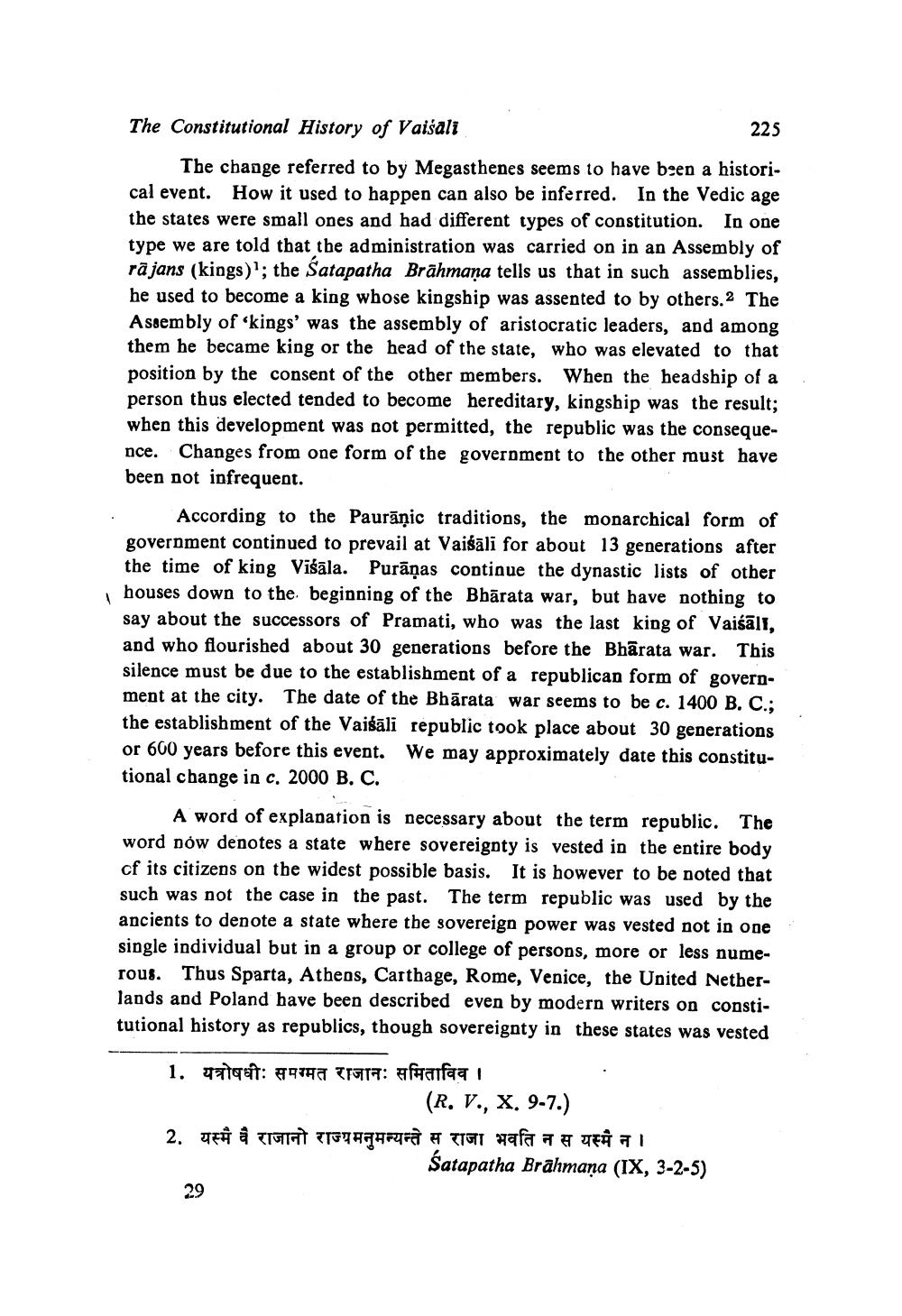________________ The Constitutional History of Vaisali 225 The change referred to by Megasthenes seems to have been a historical event. How it used to happen can also be inferred. In the Vedic age the states were small ones and had different types of constitution. In one type we are told that the administration was carried on in an Assembly of rajans (kings)"; the Satapatha Brahmana tells us that in such assemblies, he used to become a king whose kingship was assented to by others.2 The Assembly of kings' was the assembly of aristocratic leaders, and among them he became king or the head of the state, who was elevated to that position by the consent of the other members. When the headship of a person thus elected tended to become hereditary, kingship was the result; when this development was not permitted, the republic was the consequence. Changes from one form of the government to the other must have been not infrequent. According to the Pauranic traditions, the monarchical form of government continued to prevail at Vaisali for about 13 generations after the time of king Visala. Puranas continue the dynastic lists of other houses down to the beginning of the Bbarata war, but have nothing to say about the successors of Pramati, who was the last king of Vaisali, and who flourished about 30 generations before the Bharata war. This silence must be due to the establishment of a republican form of government at the city. The date of the Bharata war seems to be c. 1400 B. C.; the establishment of the Vaisali republic took place about 30 generations or 600 years before this event. We may approximately date this constitutional change in c. 2000 B. C. A word of explanation is necessary about the term republic. The word now denotes a state where sovereignty is vested in the entire body cf its citizens on the widest possible basis. It is however to be noted that such was not the case in the past. The term republic was used by the ancients to denote a state where the sovereign power was vested not in one single individual but in a group or college of persons, more or less numerous. Thus Sparta, Athens, Carthage, Rome, Venice, the United Netherlands and Poland have been described even by modern writers on constitutional history as republics, though sovereignty in these states was vested 1. Tet: a TFT: afwafaa (R. V., X. 9-7.) 2. यस्मै वै राजानो राज्यमनुमन्यन्ते स राजा भवति न स यस्मै न / Satapatha Brahmana (IX, 3-2-5)




